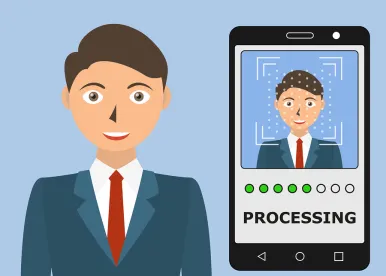Vimeo, Inc. was sued last week in a class action case alleging that it violated the Illinois Biometric Information Privacy Act by “collecting, storing and using Plaintiff’s and other similarly situated individuals’ biometric identifiers and biometric information…without informed written consent.”
According to the Complaint, Vimeo “has created, collected and stored, in conjunction with its cloud-based Magisto service, thousands of “face templates” (or “face prints”)—highly detailed geometric maps of the face—from thousands of Magisto users.” The suit alleges that Vimeo creates these templates using facial recognition technology and “[E]ach face template that Vimeo extracts is unique to a particular individual, in the same way that a fingerprint or voiceprint uniquely identifies one and only one person.” The plaintiffs are trying to liken an image captured by facial recognition technology to a fingerprint by calling it a “faceprint.” Very creative in the wake of mixed reactions to the use of facial recognition technology in the Facebook and Shutterfly cases.
The suit alleges “users of Magisto upload millions of videos and/or photos per day, making videos and photographs a vital part of the Magisto experience….Users can download and connect any mobile device to Magistoto upload and access videos and photos to produce and edit their own videos….Unbeknownst to the average consumer, and in direct violation of…BIPA, Plaintiff…believes that Magisto’s facial recognition technology scans each and every video and photo uploaded to Magisto for faces, extracts geometric data relating to the unique points and contours (i.e., biometric identifiers) of each face, and then uses that data to create and store a template of each face—all without ever informing anyone of this practice.”
The suit further alleges that when a user uploads a photo, the Magisto service creates a template for each face depicted in the photo, and compares that face with others in its face database to see if there is a match. According to the Complaint, the templates are also able to recognize gender, age and location and are able to collect biometric information from non-users. All of this is done without consent of the individuals, and in alleged violation of BIPA.
Although we previously have seen some facial recognition cases alleging violation of BIPA, and there are numerous cases alleging violation of BIPA for collection of fingerprints in the employment setting, this case is a little different from those, and it will be interesting to watch.



 />i
/>i
